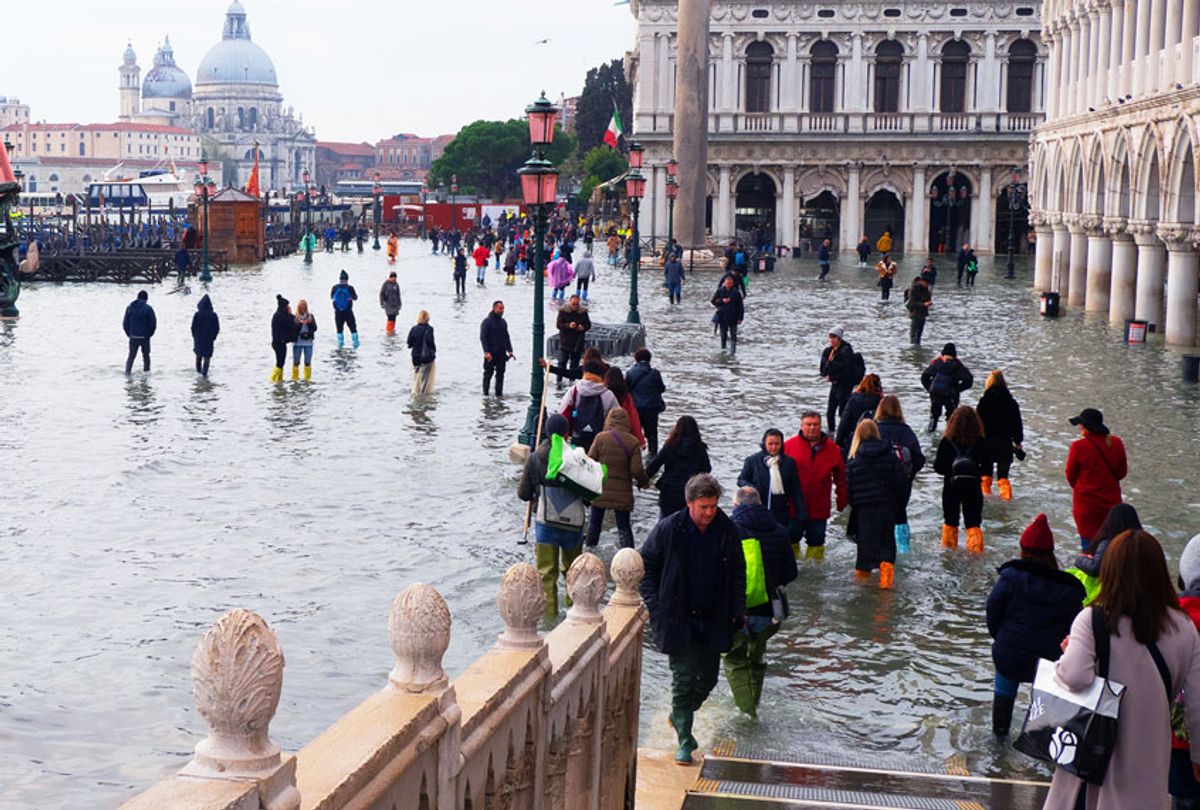Venetian Mayor Luigi Brugnaro says that his city is “on its knees” due to the massive flooding caused by man-made climate change.
“Venice is on its knees,” Brugnaro tweeted on Wednesday. “The Basilica of San Marco has suffered serious damage like the entire city and the islands. We are here with Patriarch [Monsignor Francesco] Moraglia to bring our support but we need everyone's help to overcome these days that are putting us to the test.”
Brugnaro has been an outspoken presence on Twitter since the flooding began in Venice earlier this week. His message is that the future of Venice is at stake due to the flooding, and said flooding is linked to global warming.
“Even today, [we are] facing tides that mark negative records,” Brugnaro tweeted on Tuesday as he showed a video of himself standing in a flooded area of the historic city. “Tomorrow we will declare a state of calamity. We ask the [g]overnment to help us. The costs will be high. These are the effects of climate change. The Mose must be finished soon. Tomorrow schools will close in Venice and the islands.”
Brugnaro’s comment about “the Mose” refers to the construction of a massive flood barrier designed to isolate the Venetian Lagoon and protect the city from being submerged. Italy began building these barriers in 2003 with a design that included 78 mobile gates stationed at three different inlets which would rise above the water’s surface when the tide reaches 43 inches. Although part of the barrier has been completed, it has faced controversy due to concerns about its environmental impact and corruption scandals, including one that led to the arrest of Mayor Giorgio Orsoni in 2014 (who was absolved of bribery accusations three years later). Some officials now believe the Mose won’t be completed until 2022.
As of Tuesday the water levels in Venice reached 6.14 feet (1.87 meters), the second highest ever recorded in the city and only 2.5 inches (or 7 centimeters) lower than during a historic flood in 1966. Because the city of Venice has always been in danger of submersion, scientists have warned that the effects of man-made climate change could ultimately destroy the iconic city.
“Venice faces a perfect storm of natural geological subsidence (sinking) and sea level rise from human-caused planetary warming,” Michael E. Mann, an American climatologist and geophysicist and currently director of the Earth System Science Center at Pennsylvania State University, told Salon by email. “That’s what we are seeing here and unfortunately it will only get worse for Venice and indeed all low-lying coastal cities if we continue to burn fossil fuels and warm the planet. Indeed, some additional sea level rise is baked in for decades even if we stop emitting carbon. That’s the ‘procrastination penalty’ of climate inaction.”
Ken Caldeira, an atmospheric scientist who works at the Carnegie Institution for Science's Department of Global Ecology, said climate change could easily be a factor in Venice’s floods, but warned of over-attributing things to global warming without proper scientific proof.
“As you know, climate models typically project that storms will get more intense with global warming (although perhaps not more frequent), and thus it is reasonable to think that climate change is playing a role in wind intensity as well as the sea level rise, but I have not seen any careful effort to attempt a statistical attribution of this specific event to climate change,” Caldeira said in an email.



Shares